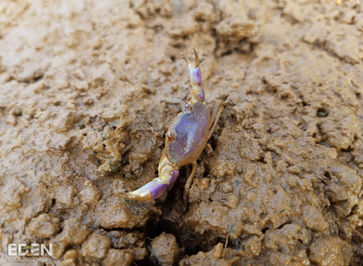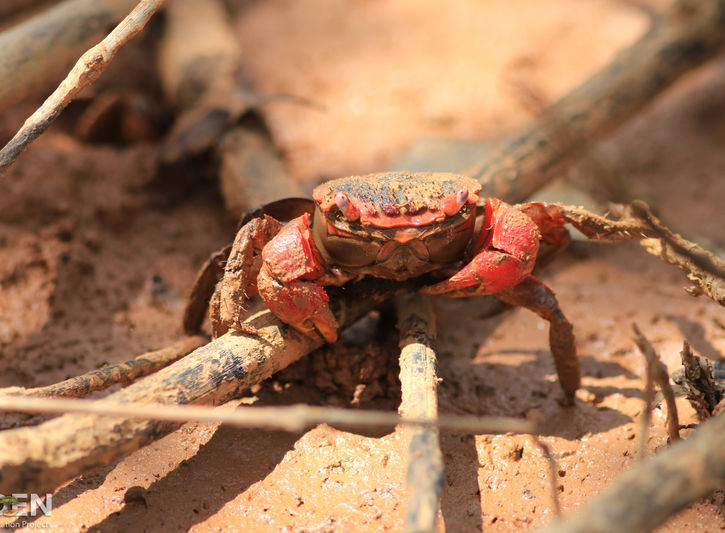
MADAGASCAR KALAMBORO
Regenerating mangrove forests, restoring coastal ecosystems and empowering communities out of poverty.
PLANTING PARTNER
Eden Reforestation Projects

Kalamboro, Boeny Region, Madagascar
This project supports local communities in restoring degraded and cleared mangroves in a remote estuary ecosystem called Kalamboro in Northern Western Madagascar. Kalamboro faces challenges from poverty, population growth, the illegal timber trade and climate change. By restoring mangroves in the area, the initiative regenerates coastal ecology, stabilises soil and provides nurseries for vital yet dwindling fish stocks.
The project empowers the local community by providing employment, improving their financial situation and aiming to free locals from modern-day slavery.
Long-term, the reforested mangroves will also act as a natural buffer against rising sea levels and increasingly volatile storms due to climate change.
IMPACTS.

1160
Hectares of forest

67% female workforce

620,000
Trees planted
LOCAL IMPACT.
The island of Madagascar faces many challenges, including whole villages enslaved to fish barons. Fish barons are boat and fishing net owners who loan out their vessels in return for a specific yield. If these are not met, the fishermen and women are put into "debt", often permanently and with devastating consequences. TreeSisters funding has already helped buy a community boat in the area, lessening the need to rent from barons.
Employing community members to grow and plant saplings enables locals to lift themselves from debt. With a 60-70% female workforce, women can put their children through school, set up micro-enterprises and start saving, often for the first time. As well as improving livelihoods and nutrition through thriving fisheries, this community engagement also changes locals' relationship with the forests and their desire to see the mangroves thrive.


IMPACT ON NATURE.
Over 90% of Madagascar's original forests have been destroyed. The mangroves in this area are a vital priority for climate-change-related conservation and critical for numerous native species listed as threatened on The International Union for Conservation of Nature (IUCN) Red List.
Mangroves grow in the saline coastal habitats of the tropics and subtropics. They are powerful carbon sequesters and soil stabilisers. They also act as tidal buffer zones as sea levels rise and storms intensify, causing more precious topsoil to erode into the oceans. These 'sea trees' provide nursery habitats for countless fish species and endangered and critically endangered turtles. The mangroves of Western Madagascar also provide critical habitat for the Madagascar Fruit Bat, listed as vulnerable and subject to high hunting pressures. Several bird species, including the critically endangered Madagascar Fish-Eagle, endangered Sakalava Rail (ground-living bird) and Madagascar Heron, also call the area home.
PROJECT IMPACT.
All along Madagascar's Western coast, mangrove estuaries are being cleared for firewood, construction, agriculture and timber, destroying rich coastal ecosystems and dwindling fish stock. By restoring mangroves, this project stabilises soil, provides rich breeding grounds and habitats for many species, and acts as a buffer against climate change. Alongside our other TreeSisters-supported dry-deciduous project in Madagascar, this project will form part of the wider Mahajanga Green Belt Project, reconnecting vital vegetative systems into a continuous thriving ecosystem.
The initiative also empowers women and the local community to be free from debt and modern slavery. Workers involved can provide healthcare for their families, educate their children, and purchase items that significantly improve their quality of life.

Project Gallery



































